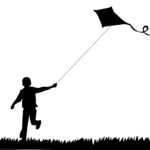Dad said the best way to know what a person is truly made of is to cut them open. Despite being the disciplinarian in our home, he was fair and kind-hearted, unlike some of the aloof men my cousins called father. I used to think my dad was made of starch because his frame reminded me of an overgrown tuber of yam. I was thirteen the night I found out how wrong I was.
I was startled by the sound of his fist-sized bunch keys hitting the laminate floor. Dad shuffled across our threshold, moving as though his legs were too heavy to lift. Mum let out a small whimper when she saw him, the smell of baked chicken trailing her from the kitchen. Dad planted one giant palm on the stark wall to steady himself. It was like watching a collapsing skyscraper in slow motion. He slunk down to the floor.
No one dared to touch Mum’s white walls, but I knew this was not why her mouth was ajar. This was the softest we had ever seen Dad, his mahogany head cradled in Mum’s lap, as though she were a plate. He looked more like the amala Grandma makes on Sundays; thick, steaming stew sliding from top to bottom then pooling around it. But the red substance congealing on his bald head was not the spicy comfort food I had been raised with.
Dad whispered something to Mum. She stopped singing “How Great Thou Art” and, although I could not hear what he had said, Mum hushed him, gently. His face, beaten and pounded, contorted every so often. And then, after the second or third time, Mum shouted for Frances with an urgency of voice I’d never heard before.
“Phone for an ambulance, ngwa!” When she mixed English with Igbo it always unnerved me.
“I’ll call an ambulance Mum,” said Frances, my brother, snatching my phone from my hand. “Password?”
I silently presented my thumb, unlocking the screen.
As if each of Frances’s blinks made life fast forward, before I knew it, paramedics were suddenly at our door.
I remember the bloodied palm print on the wall.
It looked darker than I thought possible, and each fingerprint was just as precise and perfectly formed as I’d seen in movies.
As Dad was wheeled into the ambulance, I sat on the stairs staring at the blood spatter I would later liken to a Rorschach test, after learning the term in my A-level psychology class. That was the night I discovered my father was made of fear and resilience, not starch as I thought, or privilege, like his attackers believed.
Days later, I heard Mum on the phone to her sister: “Mr. Seymour hit first. He lives in the house at the end of our street and his family smiles when we pass. Usually. I thought they liked us?”
As she continued, I learned that Mr. Weber, Mr. Rossi and Mr. Adebayo joined in too, kicking and punching and spitting, not just at Dad, but also at his brand new car. It was time to teach the arrogant monkey a lesson. Mum cried when she said that line. I don’t know whether it was the brutality, the jealousy or the shock that Mr. Adebayo, a fellow Nigerian who had sat on our sofa and laughed at Dad’s jokes, said nothing when my father was called a monkey.
It shook us all.
Dad said the best way to know what a person is truly made of was to cut them open. I thought it was a weird thing to say since biology taught me that we are all blood and bones on the inside. But what he meant was that exteriors often are deceiving. Now, seeing my father broken taught me how revealing our fear and the fear of others can be.
That night, Frances and I learned that our skin was a sin; but how much penance would we need to pay until we are forgiven?




Comments: no replies